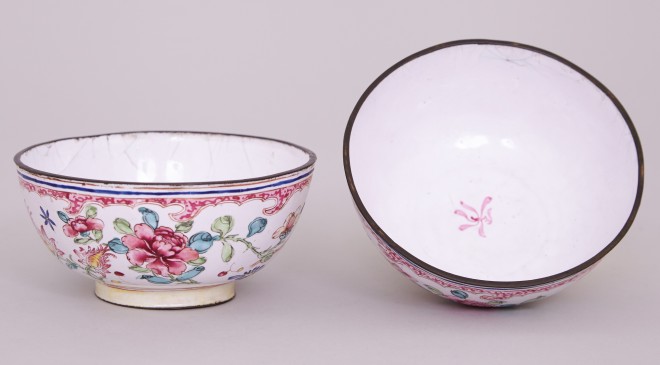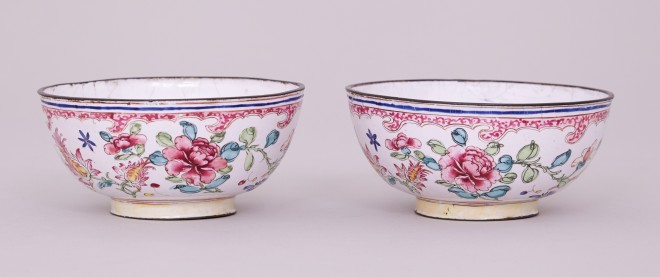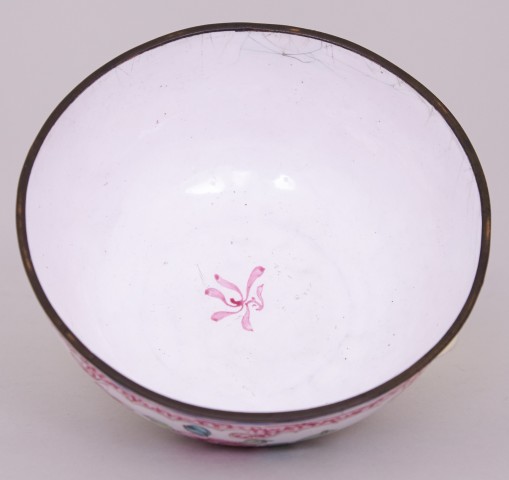BB67 & BB68
Further images
Of round form, the curved sides rising from short feet, the enamel painted around the bowls with a decoration of peony, prunus and further flowering sprays, a shaped band around the rims, the interior of the bowls with a single stylised flower, yellow bands around the short feet, the recessed bases with a sticker imprinted with; ‘L. E. Fernandes Collection, no 104’.
Provenance
The Collection of Luís Esteves Fernandes (1897-1988)
Literature
Luís Esteves Fernandes was born in 1897 in Lisbon, Portugal. Following his graduation from the Faculty of Law of Lisbon University, health-related problems forced Esteves Fernandes to defer entering the legal profession. He read profusely during his convalescence, including in particular, books and articles on the Orient. Once recovered, he decided to drop his original intention to practice Law and instead, took and passed the entrance examinations for the diplomatic service.
After a stint in the Cipher Section of the Foreign Ministry, Esteves Fernandes was named in 1925, Third Secretary to the Portuguese Legation in Peking, where he remained until 1931. He witnessed with sympathy the upsurge of Chinese protests against the so-called ‘Unequal Treaties’ and the foreign-run concessions, as well as resistance to Japanese aggression. As a rule, Portugal, whose main concern was to safeguard Macau’s status, closely aligned its stance with that of Britain. This gave the young diplomat time to indulge his passion for Chinese culture and art. His admiration for China and its cultural heritage – reflected in a book written in Peking in 1926 – earned him the respect and friendship of members of the Chinese intelligentsia, as well as of the Peking antique dealers from whom he obtained invaluable insights on how to distinguish genuine pieces of art from imitations and objects made solely for Western tastes. Thus began Esteves Fernandes’s life-long quest for Far Eastern antiquities. China was always to be the fulcrum of his interest but a six-year assignment as Portuguese Minister to Japan during World War II (1939-45), led him to extend his collection to Japanese fine arts.
Wherever he was stationed – pre-war Paris and London, Geneva (League of Nations) and after the war as Portuguese Ambassador to Washington (1950-61), Esteves Fernandes devoted much of his leisure time to the selection of carefully chosen antiquities.






